Gaming and boss fights have had a glorious relationship ever since the former’s inception. A good antagonist has always raised the level of any game, regardless of gameplay or story. In terms of linear games, we are introduced to the main bad guy pretty early on in the plot, only to build up to a final showdown at the end of the game. Countless games follow on through this formula, so much so that it has become a staple through the whole gaming industry. One game which tries to revolutionize the whole story is the latest title from Compile Heart – Trillion: God of Destruction.
The concept of Trillion is as interesting as it gets. One big, bad boss, with a TRILLION hit points, who is in the game from the get go, just like other titles, but with a twist. This boss is here to keep you company for the whole duration of the game, and unlike other games you will not face him only once at the end, but in different occasions throughout. This is because the God of Destruction is a formidable opponent, one who cannot be stopped simply by a one on one fight, because of his Trillion hit points. The game also incorporates the name very well indeed, depicting the entity as the result of a trillion curses, so as to have his name make sense both ingame and out of the game.
The title starts with a little background of the underworld, the setting for the events which are to come. Here we encounter Zeabolos, the Great Overlord, who rules the Underworld along with all his generals and his armies. Then one day, Trillion, who had previously also wreaked havoc on the underworld, shows up and threatens to destroy all the forces gathered by Zeabolos in one fell swoop. After killing the latter’s brother, Trillion does in fact kill Zeabolos as well, but thanks to the intervention of a woman, who we later come to know as Faust, he comes back to life but “on contract”, as Faust herself states.
The premise of the game is fairly simple, but can become complex if one loses track of all the different features of the game. Given that Zeabolos has only a very small fraction of his power left, he cannot fight Trillion again, so he calls upon his Overlords to fight for him and defeat this massive foe. These Overlords are his top ranked generals, and each of them represents one of the seven deadly sins, as shown by their personalities. Even if they are revealed in the intro video, it makes for a fun little game to discover what sin each character represents, as their behaviour makes it quite easy to become aware who is which. It is then up to these overlords, who one at a time get a chance to fight Trillion in the ultimate aim to free the Underworld from this pending death sentence.
As mentioned before, there are various elements making up the game, starting from the menu screens before any action occurs. Due to the powerful miasma which Trillion emits, it is imperative that any instance of fighting it have to happen while Trillion is awake, since when asleep this miasma is much more intense and will give no chance to offenders. This means that while Trillion is asleep, you will get to lay the groundwork for the next fight against him, by taking part in a variety of actions, each consuming one day. Days are what make up cycles, which are the turns Trillion will sleep for. At the end of one cycle, you will have a dummy fight against Faust’s Mokujin to test your progress and find out if you are effectively improving or staying level. Daily actions range from training to interacting with your overlord to exploring the Valley of Swords, a special dungeon which can be entered upon collecting five medals, and such medals are gained by scoring an Excellent or a Good rating in training, which is fairly easy unless your overlord is tired. Resting is another option available which consumes a day but which removes fatigue from your overlord, which comes in very useful at regular intervals throughout the game.
In terms of actual gameplay, the game makes changes to conventional battles as well. First off, the combat in the game takes a unique spin off of turn-based RPGs, in the sense that while the formula is pretty much the same, execution is a bit different. While in traditional JRPGs, players and AI take turns to act, in Trillion actions happen in real time, so if you move, an enemy will make its move in the exact same second you do yours. The game also highlights the moves that Trillion and other opponents make by highlighting the floor tiles with varying colours depending on their proximity to happening, for example a yellow tile means that the attack is far from occurring, but a red tile means that it will probably happen in the next turn. It makes for a more strategic game, which requires faster thinking than standard turn-based combat. Killing an enemy will also grant a free turn, so one should consider multiple possibilities, particularly when a strong attack from Trillion is incoming and you have a number of foes nearby. Magical abilities and passive abilities are also thrown into the mix to always provide the player with an ace up their sleeve, something which games very rarely do as of lately.
Story wise, the game delivers, big time. The events circle around the ruler of the Underworld, a kingdom which was born from defying God, meaning that these are bad guys we play as, but given the circumstances and what is going on, they become the “good guys”, since technically they are not as bad as the main antagonist of the game, who is Trillion. Even though these are deadly sins we are talking about here, the dialogue is so well done it manages to make the player empathize with these characters since in the end it is their kingdom and their lives which are at stake. It is no easy feat turning the bad guy into the good guy, but the script and most of all the voice acting are of the highest order, accomplishing their aim tremendously well. The characters, who all represent the deadly sins, are also developed in depth and we come to learn quite a lot about each, thus being able to appreciate how different but at the same time similar each of these overlords are.
Character design is another very important factor in Trillion, and not only the inner feelings and emotions are important but also the exterior layer of these overlords, meaning their appearance. Each character is drawn very differently to the next, continuing the notion of the very different personalities each of these overlords possess. Ingame, the graphics may not compare to blockbuster AAA titles, but being on the PS Vita, they look incredibly good and sharp. UI can get a little all over the place with all the information on screen at once, but since it is placed at the sides and the corners of the screen, the action still takes the main focus. The soundtrack chosen for the game continues to make it a must-play title, since menu, battle and any other type of music is spot-on, and never leaves you questioning the selection of background melody no matter the situation.
Trillion: God of Destruction is an amazing addition to an ever growing library of PS Vita titles. Compile Heart is yet again at the helm of another great title to grace the small screen of the Sony handheld, and with all its different features and the quality of execution, it may be the best one yet!


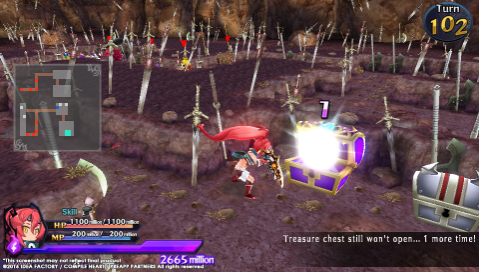
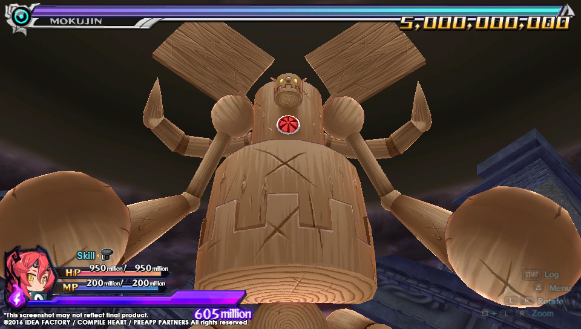

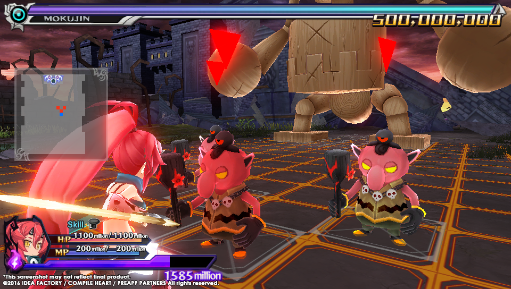
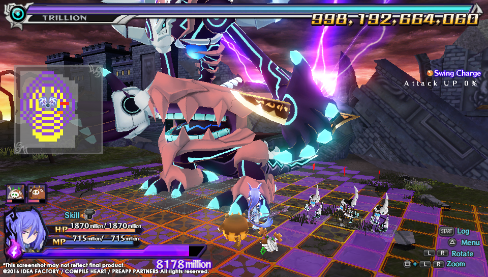

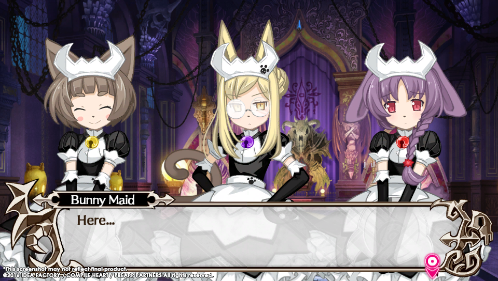
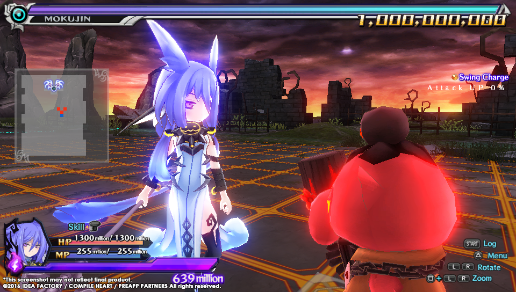
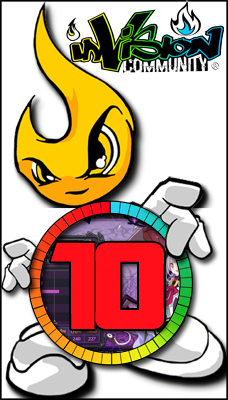






You must be logged in to post a comment.